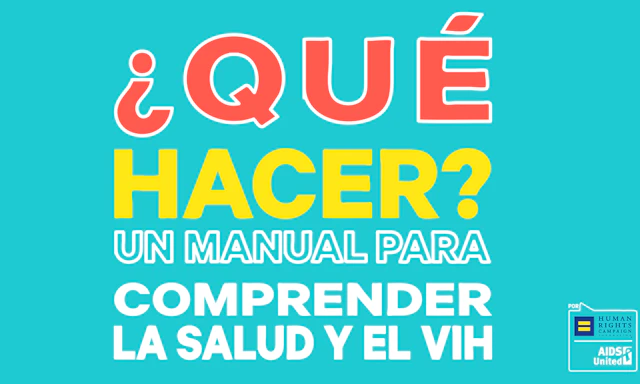
Cookies in use
Debunking Common Myths About HIV

Read responses to myths that 'HIV is a gay disease' or a 'death sentence,' and find other important information about getting tested.
Myths about who contracts HIV
MYTH: “HIV is a ‘gay’ or ‘LGBTQ+’ disease.”
REALITY: While rates of HIV are disproportionately higher among members of the LGBTQ+ community, HIV is by no means confined to LGBTQ+ people. Anyone—regardless of sexual orientation, gender identity, gender expression or other factors—can acquire HIV. Calling HIV a “gay” or “LGBTQ+” disease is medically untrue and only serves to perpetuate harmful stereotypes about people living with HIV and members of the LGBTQ+ community.
MYTH: “I am over 50! I don’t need to worry about HIV.”
REALITY: HIV transmission is about behavior; not how old you are. Moreover, according to the CDC, older Americans are more likely to be diagnosed with HIV at a later stage of the disease.
MYTH: “I am in a monogamous relationship. I don’t have to worry about HIV.”
REALITY: It is still important to get tested for HIV even if you’re in a monogamous relationship. According to the latest estimates, 68 percent of new HIV transmissions among gay and bisexual men occur in the context of a primary relationship (e.g., boyfriend, friend with benefits). Be sure to talk to your partner(s) your sexual health and practices and theirs. You might even consider getting tested together for HIV and other sexually transmitted infections (STIs).
MYTH: “I can tell whether someone is HIV-positive just by looking at that them.”
REALITY: Some people can live with HIV for more than 10 years without showing signs or symptoms. No matter what people say, there's no way to know whether someone is (or isn't) living with HIV just by looking at them.
MYTH: “You cannot get HIV from oral sex.”
REALITY: Even though the likelihood of contracting HIV through oral sex is low, transmission can still occur. The chances are even greater if there are cuts or ulcers in the mouth or on the gums, which may appear after brushing or flossing.
MYTH: “I will contract HIV if I have sex with someone who is living with HIV”
REALITY: There are many ways to remain HIV-negative if you have sex with someone living with HIV Here are some ideas:
- Use Condoms. Find the right size and choose a type of condom you like.
- Use Lube. Use water-based or silicone-based lubricant – particularly for anal or vaginal sex – to prevent tears in the skin and to keep condoms from breaking.
- Get Tested. It’s the only way to know if you or a partner has HIV.
- Test and Treat STIs. Having an active STI, or even a history of certain STIs, can make it easier to acquire or transmit HIV.
- Talk to Your Partners. Ask sexual partners about the last time they got tested for HIV and other STIs. Consider getting tested together.
- Date Undetectable. By consistently taking their medication, people living with HIV are able to lower the amount of HIV in their bodies to undetectable levels. While undetectable, a person living with HIV remains in good health, and it is virtually impossible for them to transmit the virus to a partner. Prevention options (e.g., condoms, PrEP) exist for those in relationships where one partner is not yet undetectable.
- Be mindful of drug and alcohol use. Substance use can increase your chances of acquiring HIV directly and indirectly, depending on the circumstances.
- Change Syringes. If you inject hormones, drugs or steroids, use a new, clean syringe and other injection equipment every time.
- Consider PEP. PEP is an HIV prevention strategy that can be used in emergency situations, such as condomless sex with someone whose HIV status you do not know.
- Consider PrEP. PrEP is an HIV prevention strategy that can be taken every day to significantly reduce the likelihood of acquiring HIV.
Myths about HIV testing and treatment
MYTH: “I recently tested negative for HIV, so I don’t have anything to worry about.”
REALITY: Testing for HIV during a window period can lead to a false test result, especially if you engaged in high-risk behaviors in the weeks or months leading up to your test. Find out how long the window period is for your HIV test and consider getting tested early and often.
MYTH: “I see my doctor every year for a full physical. I am sure the HIV test is included.”
REALITY: HIV screenings should be a routine part of your annual exam, but it may not always happen this way. Be sure to ask your healthcare provider about it just to be safe.
MYTH: “HIV drugs are poison. They will destroy your body.”
REALITY: At the beginning of the HIV & AIDS epidemic, HIV medications were difficult to take and had debilitating side effects. Scientists have since created medications that have fewer side effects and are far easier and safer to use.
MYTH: “HIV is a death sentence.”
REALITY: HIV is an easily treatable, long-term medical condition. A person living with HIV today can expect to lead a long and healthy life if they consistently take their medication.
Myths about HIV prevention and safer sex
MYTH: “I am on PrEP. I don’t need to use condoms.”
REALITY: When taken as prescribed by a knowledgeable healthcare provider, PrEP has been shown to be safe and highly effective against contracting HIV. While PrEP does not protect against other sexually transmitted infections or unwanted pregnancy, it can be paired with condoms and several other prevention strategies for additional protection.
MYTH: “PrEP is only for people who have a lot of sex and don’t want to use condoms.”
REALITY: There are many reasons why someone might want to take advantage of PrEP. Perhaps they are in a relationship with a person living with HIV. Perhaps they have trouble consistently using condoms. Whatever the reason, PrEP is a safe and highly effective HIV-prevention strategy and a welcome addition to the HIV prevention toolbox.
This resource is not a substitute for sound medical advice — and the examples throughout it don’t cover every situation! We encourage you to seek out additional resources from other community advocates and, most importantly, talk to a knowledgeable healthcare provider before making any medical decisions.
Last Updated: January 2023
- Topics:
- HIV & Health Equity
- Health & Aging
Love conquers hate.


